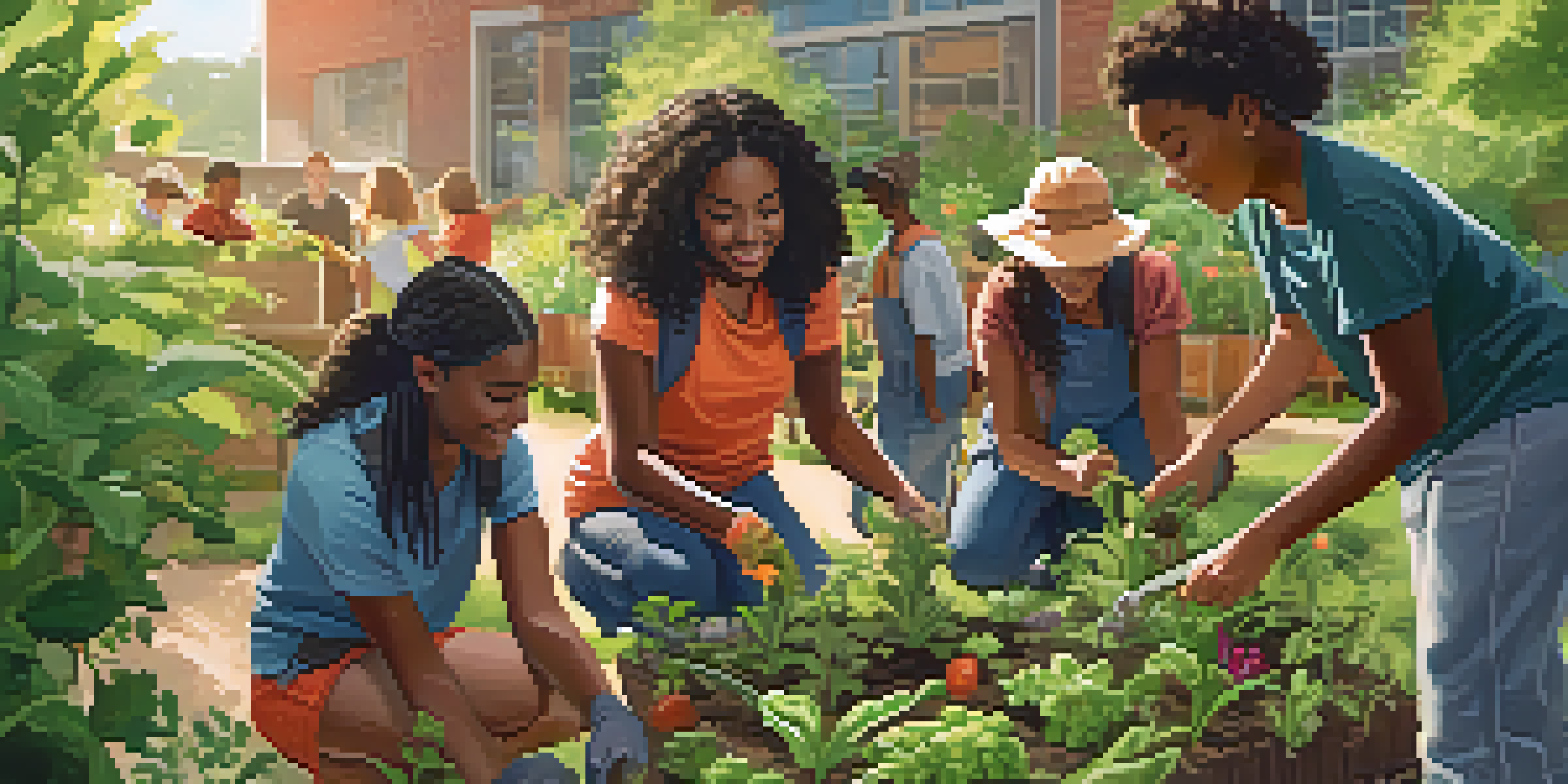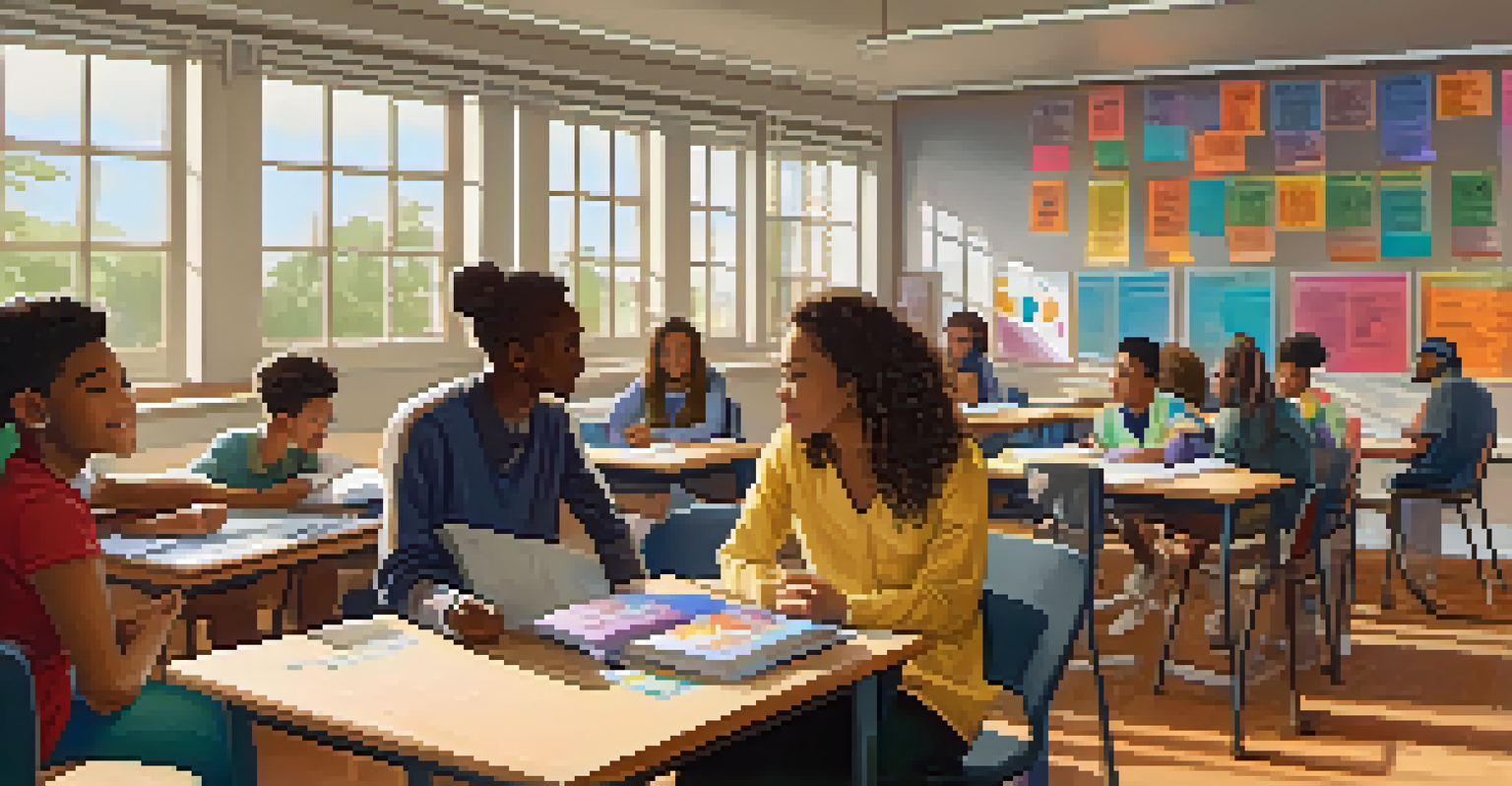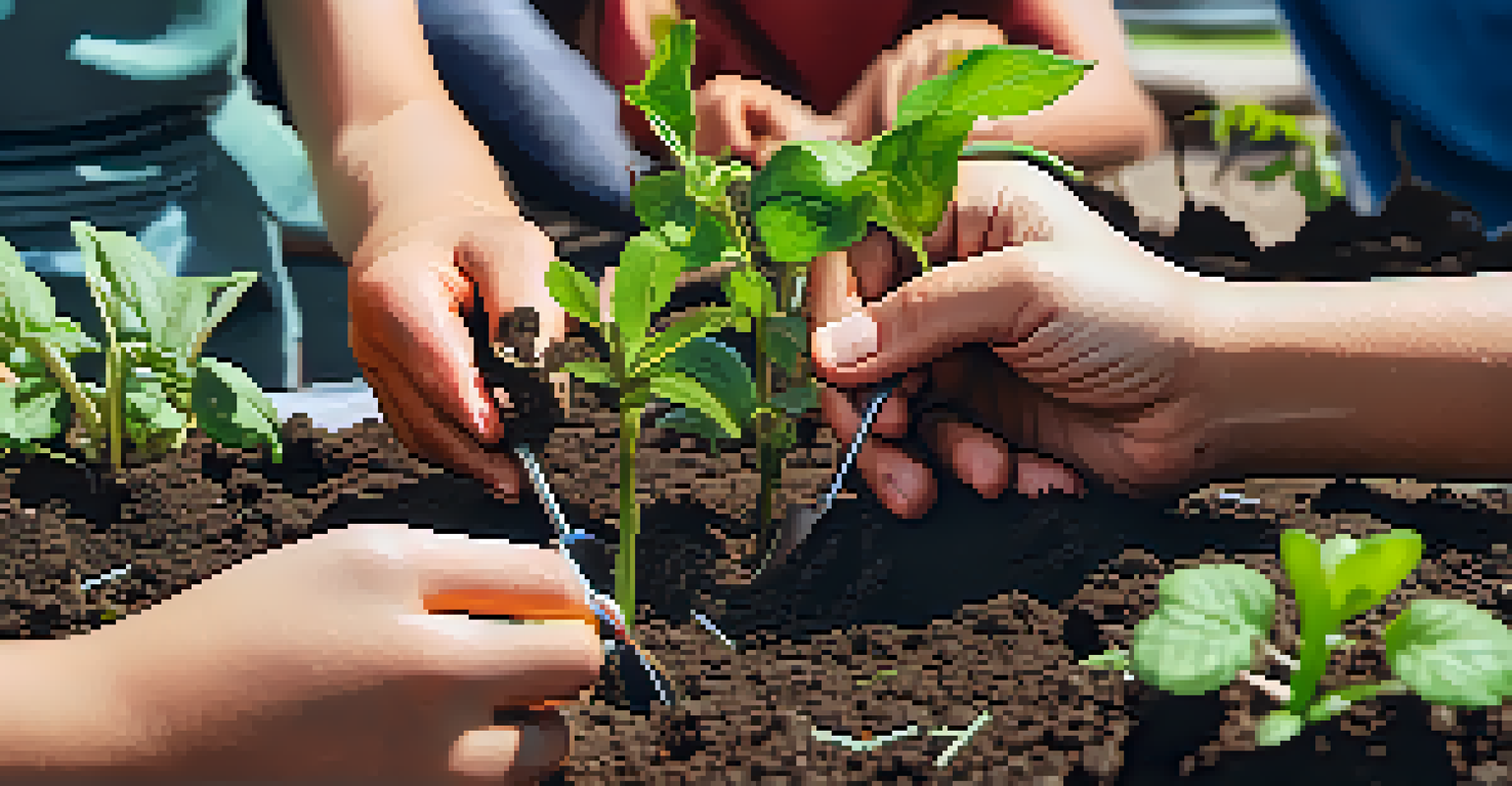The Role of Service Learning in Interdisciplinary Education

What is Service Learning and Why It Matters
Service learning is an educational approach that combines learning objectives with community service. It’s not just about volunteering; it also aims to reinforce academic concepts through real-world applications. This method allows students to make connections between their studies and societal needs, enhancing their educational experience.
Service learning is a way to bridge the gap between the classroom and the community, enriching the educational experience.
By engaging in service learning, students can develop critical thinking and problem-solving skills. They learn to view issues from multiple perspectives, which is essential in today’s complex world. This approach not only benefits the community but also fosters a sense of responsibility and civic engagement among students.
Moreover, service learning promotes interdisciplinary collaboration. When students from different academic backgrounds come together to tackle a community issue, they bring unique perspectives and expertise to the table, enriching the learning experience for everyone involved.
Interdisciplinary Education: A Holistic Approach
Interdisciplinary education involves integrating knowledge and methods from various disciplines to provide a more comprehensive understanding of complex issues. This approach reflects the interconnectedness of real-world problems, allowing students to see the bigger picture. For instance, addressing climate change requires insights from science, policy, and social studies.

By incorporating service learning into interdisciplinary education, students can apply their theoretical knowledge in practical settings. This hands-on experience is invaluable, as it helps bridge the gap between classroom learning and real-life challenges. Students don’t just learn about a subject; they actively engage with it in meaningful ways.
Service Learning Enhances Education
Service learning combines academic objectives with community service, enabling students to apply their knowledge to real-world issues.
Furthermore, this integrated approach encourages collaboration among students from different fields. Such teamwork fosters innovation, as diverse viewpoints often lead to creative solutions that might not emerge in traditional learning environments.
Enhancing Critical Thinking Skills Through Engagement
Service learning challenges students to think critically about the social issues they encounter. As they engage with community members and assess their needs, they must analyze information, consider various viewpoints, and devise effective solutions. This process helps sharpen their analytical skills, which are crucial for success in any field.
Education is not preparation for life; education is life itself.
For example, a group of students studying public health might partner with a local clinic to address health disparities. Through this collaboration, they’ll need to evaluate data, develop outreach strategies, and measure the impact of their initiatives. Such experiences cultivate a mindset of inquiry and adaptability.
Moreover, critical thinking nurtured through service learning translates well into other academic pursuits and professional settings. The ability to approach problems methodically and creatively is a skill that employers highly value, making students more competitive in the job market.
Building Empathy and Social Responsibility
One of the most profound impacts of service learning is its ability to foster empathy and social responsibility among students. By interacting with diverse populations and understanding their challenges, students gain a deeper appreciation for different perspectives. This emotional connection can be transformative, influencing their values and future actions.
For instance, a project that involves working with underprivileged youth allows students to witness the barriers these individuals face firsthand. Such experiences can ignite a passion for social justice and motivate students to become advocates for change in their communities.
Empathy and Responsibility Grow
Through service learning, students develop empathy and social responsibility by engaging with diverse communities and understanding their challenges.
As students cultivate empathy, they also develop a sense of moral responsibility. They begin to recognize their role in society and the importance of contributing positively, not just within their fields of study but in their everyday lives.
Bridging Theory and Practice in Learning
Service learning effectively bridges the gap between theoretical knowledge and practical application. While classroom learning can sometimes feel abstract, engaging in real-world projects allows students to see how their studies come to life. This connection enhances understanding and retention of information.
For example, a student studying environmental science may learn about sustainability in class, but participating in a community garden project allows them to apply those principles hands-on. They can witness the impact of their efforts, reinforcing their learning and commitment to the subject.
This experiential learning not only solidifies knowledge but also prepares students for future careers. Employers are often looking for candidates who can translate theory into practice, making service learning a valuable addition to any educational curriculum.
Cultivating Leadership Skills Through Collaboration
Engaging in service learning projects often requires students to take on leadership roles, whether formally or informally. As they work together to address community needs, they learn to coordinate tasks, delegate responsibilities, and motivate their peers. These experiences are crucial for developing strong leadership skills.
For instance, a student leading a team in a literacy program must navigate challenges, resolve conflicts, and adapt to changing circumstances. Such responsibilities help build confidence and enhance their ability to lead in diverse environments.
Leadership Skills Through Action
Participating in service learning projects fosters important leadership skills as students collaborate to address community needs.
Moreover, these leadership experiences can be invaluable when students enter the workforce. The skills they develop through service learning—such as teamwork, communication, and problem-solving—are highly sought after by employers across all industries.
Preparing Students for Global Citizenship
In our increasingly interconnected world, preparing students for global citizenship is more important than ever. Service learning provides an avenue for students to engage with global issues while fostering an understanding of cultural diversity. This exposure helps them appreciate the complexities of global challenges and the importance of collaboration.
For example, students participating in a project aimed at providing clean water in developing countries not only learn about the technical aspects but also the cultural and social contexts that influence these challenges. This holistic understanding is key to becoming effective global citizens.

Ultimately, service learning equips students with the mindset and skills needed to contribute positively to an ever-changing world. They emerge as informed, compassionate individuals ready to tackle the pressing issues facing our global community.